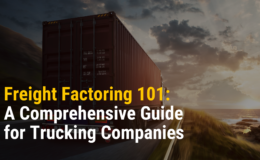March saw a tremendous surge in shipping for the trucking industry. Volume jumped by over 30%, and trucking companies were hard-pressed to keep supply chains moving to match the demand of consumers.
“Panic purchasing” swept the country as people were stockpiling toilet paper and non-perishable goods, creating a major demand for distributors and shippers to get goods to every city in the United States. The trucking industry, after a tumultuous 2019, has more leverage in pricing agreements, and demand is not showing any signs of slowing down.
Panic Purchasing Vs. necessity Purchasing
Panic purchasing and necessity purchasing are two very different market motivators, and both are currently in play. Panic purchasing happens on the individual consumer level when people feel the need to stock up on goods.
This happens before a major storm or any crisis that can leave people without access to the things they need for any length of time. Oddly, it also happens when “hot” items hit stores, such as much-sought-after toys, during the holiday season.
Necessity purchasing is usually experienced at a higher level, such as what the healthcare industry is experiencing with medical equipment and supplies. Both place demand on shippers and carriers alike, and both are straining logistics to keep supply chains moving.
Are these trends temporary?
The pressure placed on the trucking industry will continue as long as panic purchasing and necessity purchasing are in play. The current situation is not showing a sign of lessening, no matter what lawmakers might say. In this climate, people are listening to healthcare professionals to guide their behavior. Supply chains are running strong.
At the other end of the spectrum, the manufacturing sector has slowed tremendously until those businesses are tapped to produce ventilators and similar medical equipment. Even in the food industry, meat packing plants are closing down as workers are falling ill, which can stop revenue for the trucking industry on that front.
Currently, the situation is a mixed bag, but so long as panic purchasing is still in effect, the trucking industry will maintain pricing leverage when taking on shipments to keep our medical industry stocked, the citizens fed, and our economy rolling.







